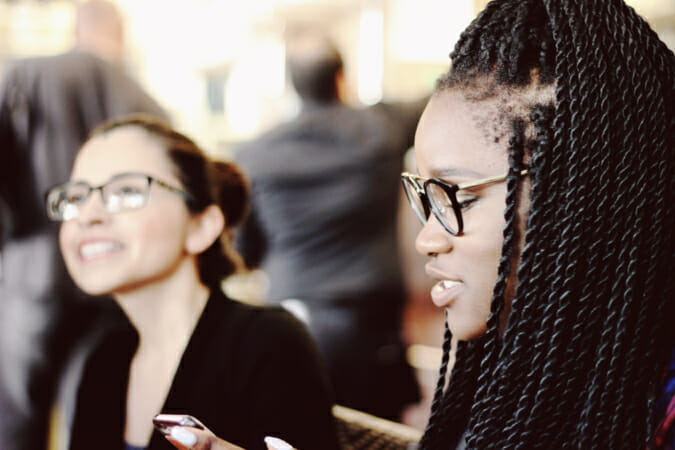Gender Equality in the Travel Industry: There's More to be Done
At its foundation, the travel industry is about hope, aspiration and curiosity. These cornerstones represent both the power of travel and the motivations behind it.
Travel is also something that is uniquely open and appealing to everyone, regardless of background. That was one of the reasons why we suggested that the travel industry should be a beacon of diversity. There's nothing else like it for bringing people together and introducing people to new countries, cultures and ways of life.
One thing we neglected to mention in the diversity article linked above were the issues surrounding gender in the travel industry. It's well known that there is an absurd lack of parity between men and women in the wider workplace, both in terms of high profile positions and wages. In fact, in many professions, women get paid less than men for doing exactly the same job.
But what about an open, tolerant travel industry that should strive to be a bastion for equality and equal opportunities? Well, it's bad news: the latest research shows that there's plenty of work to be done if travel wants to truly be an industry of parity and fairness.
The travel industry, just like many others, is still struggling with true gender equality.
Women (still) earning less than men in travel
C&M Travel Recruitment and C&M Executive Recruitment has released research showing that women in travel are still on average earning less than male counterparts. This is despite more women than men working in the industry.
One the one hand, women accounted for 67% of all new travel placements in the opening months of 2017. However, they received, on average, smaller pay packets than their male counterparts across almost all levels of the industry.
Starting at the top, women beginning new executive roles had an average income of £47,571. Men in the same roles earn 7.56% more, at £51,167.
Women earned 1.54% less than men in senior roles paying between £30,000 and £39,999 and 3.21% below males in mid-level travel positions paying between £22,000 and £29,999.
Strangely, there was an exception to the rule. Junior travel roles ( those paying below £22,000) saw women’s pay slightly ahead, by 0.53%. Although that only accounts for £96 per year.
Barbara Kolosinska, director at C&M Travel Recruitment and C&M Executive Recruitment, which carried out the study, said: “It feels as though we’ve been talking about the gender pay gap forever and yet our new figures show that the problem is still prevalent in the travel industry."
“Thankfully, the gap has all but disappeared for entry level and junior roles, but women are still routinely earning less than men for the average mid-level or senior position.
“When female executives are typically earning £3,500 less than men in similar roles, it is evident that we have an issue.
“The travel industry is a fantastic place for both women and men to work, and I believe we have a far better attitude and approach to gender equality than many other industries, but it is clear that more can still be done.”
“Our figures show that more women have been appointed in senior and executive roles than men so far this year and that is a truly encouraging finding,” said Kolosinska.
“We have become used to seeing men hold the majority of high-powered jobs in the UK, but it seems that the travel industry could be the exception.
“These figures are in contrast to those from the start of last year, so whether this proves to be a long-term trend or merely a short-term blip will be fascinating to see and we will be keeping a close eye on this throughout the rest of 2017.”
Women on the march in travel industry

The above statistics show that the travel industry still has a long way to go for women to achieve parity in the workplace. Clearly, this isn't an issue that's restricted to the world of travel, but in an industry based on aspiration and openness, it's fair to say that more can be done to improve the situation.
Writing for Skift, Sarah Enelow goes into detail about how women around the world are already fighting inequality in the travel industry. She says that tackling the issue is even more vital in a Trump presidency era.
"Grassroots activism is now the go-to tactic for achieving gender equality in the Trump-era travel industry. Lobbying male executives one-on-one isn’t working, so women are employing their collective influence, reminiscent of recent movements like the Women’s March in Washington, D.C."
Gender equality requires being bold online and in the workplace
While there have been high-profile protest events against new US president Donald Trump, women in the travel industry are looking to take a similar level of activism online, according to Laura Mandala, founder of Women in Travel & Tourism International.
Speaking to Skift, she said that online rallying cries, such as #GrabYourPurse, can be used to hightlight unfair practices and draw attention to companies not doing enough to tackle gender inequality in the travel workplace.
“Every time we see an organization or an entity where women are not being treated equitably, we can point it out, we can send [the hashtag] out… We’re encouraging women: Grab your bag, work somewhere else, grab your bag, go travel somewhere else.”
“We did an analysis and found that there was a dearth of women in most senior leadership roles in this industry,” Mandala said. “Women are making 70 percent of all travel decisions, 72 percent of all travel agents are women, and yet only 33 percent are leading a travel organization like the American Society of Travel Agents.”
"Is that it?" vs "Oh thank you!"
Also speaking to Skift was Cathleen Johnson, principal of Cathleen Johnson Tourism Consultants. She discussed the different approach that men and women tend to take to salaries. “How do you reach salary parity in a better way? …When men get a raise their response is, ‘Is that it?’ When women get a raise they say ‘Oh thank you!’ I think we have to learn to be
“How do you reach salary parity in a better way? …When men get a raise their response is, ‘Is that it?’ When women get a raise they say ‘Oh thank you!’ I think we have to learn to be more bold. I would say being bold, to me, has really gotten me where I’m going.”
From this we can see that tackling the problem of inequality in the travel industry is twofold. For reasons that go way beyond travel, women tend not to ask for more money where a male counterpart might. And in the business world, it's often a case of 'if you don't ask, you don't get'.
So how can we fix this?
On the one hand, a gender movement needs to be supported, bringing attention to companies that aren't doing enough and calling them out for a lack of parity. Responsibility ultimately lies with the employer to treat employees fairly, no matter what the industry.
But it's also clear that something needs to that takes place on an individual basis. Johnson points out that women shouldn't be afraid to be bold and to value themselves more highly. Companies need to create an environment where women feel empowered to ask for more and to actively seek out parity.
Diversity is key for successful travel startups

There are several reasons why gender equality is vital for travel industry moving forward. Obviously the first is basic fairness. In no walk of life should discrimination occur because of gender, race or any difference other than ability. In an industry based on aspiration and hope, it would be hypocritical for travel to continue in this vein.
But at very basic level, diversity in the workplace is key to any company's success. That's perhaps proved in the high number of women that work in travel. After all, half of the industry's target market are women.
But at a deeper level, diversity is the industry's lifeblood. Travel is all about a diversity of opinions, perspectives, backgrounds and cultures, all coming together to develop interesting products and ideas. Gender equality is a fundamental requirement of that diversity.
We've spoken before about team building, about how diversity lends itself to a dynamic startup environment. Travel companies should recognize that having women in leadership positions and gender equality at all levels is a no-brainer. It's in their interests.
Travel and gender equality
Gender equality is a long struggle that's been years in the making. While progress is being made, there's still a long way to go. Obviously, the travel industry cannot singlehandedly defeat the cultural and societal norms that stop true gender equality from occurring. Nor can it be held responsible for reflecting those norms.
However, as we've mentioned, any industry that champions and relies upon diversity to the same extent as travel needs to be playing a bigger role. This is a movement that goes both ways. It needs activism and policy change from the top to bottom the bottom, from the individual to leaders at the world's largest travel operators.